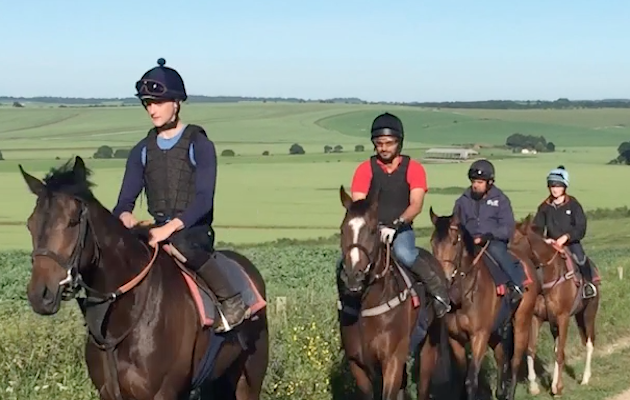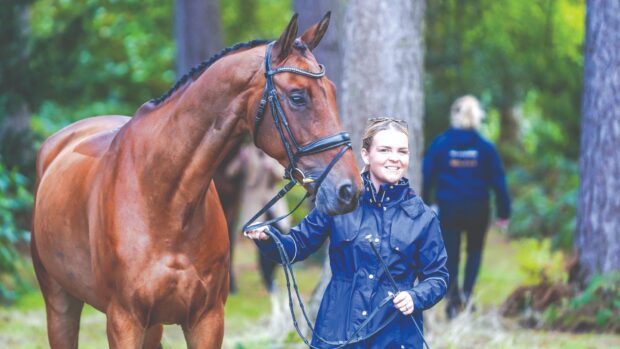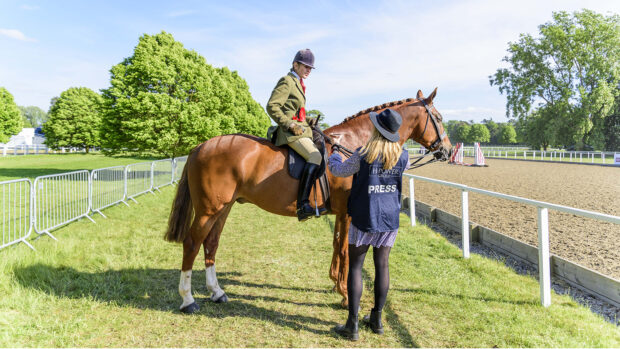With A Level results day in full-swing (15 August), you might be unsure as to whether university is for you. In the equestrian industry, there are plenty of career opportunities that do not require you to go to university, instead offering alternative qualifications to get you on the right career path. Here is a selection that might interest you…
1. Farrier
Being a farrier is a physically demanding job, however, it is also highly skilled and is often self-employed, which gives you flexibility in your career. Responsibilities include creating and fitting shoes onto horses, trimming feet and corrective shoeing following lameness or injury.
In order to practice legally, all farriers must register with The Farriers Registration Council.
Potential farriers, over 16 years, will need to complete an advanced apprenticeship placement lasting approximately four years, while also employed by an approved training farrier.
A 23-week training course is also required at one of the following approved colleges: Herefordshire and Ludlow College, Myerscough College (Preston) and Warwickshire College.
To find out more click here.
2. Racing stable staff
Working in the racing industry is an exciting, sociable career that requires a good level of riding experience in order to exercise thoroughbred racehorses.
Working on a racing yard also includes basic yard duties, as well as caring and turning out the racehorses to a high standard and accompanying them to the races.
It is advised that those hoping to work in a racing yard study an equine college course, before a stint at either the British Racing School or the Northern Racing College, which offer a variety of training courses — however, anyone aged over 16 can apply.
On successful completion of the level two diploma apprenticeship, students will be placed into employment at a racehorse trainer’s yard.
To find out more click here.

3. Saddler
Professional saddlers are skilled and qualified individuals who make and repair saddlery.
In order to become a qualified saddler, you will need to obtain level three of the City & Guilds Saddlery qualification and complete a four-year apprenticeship working alongside a qualified master saddler.
To become a master saddler, the above qualifications are required and you have to have been in the trade for at least seven years. There are also qualifications available to become a professional saddle fitter.
To find out more click here.
4. Hunt groom
If you take pride in turning horses out in tip top condition, enjoy riding horse of all sizes and aren’t scared of hard word, a career as a hunt groom could be for you.
You will need to have an interest in the hunting lifestyle and be enthusiastic. Helping out in a local hunt kennels is the best way to get a foot in the door in the industry.
Qualifications are not necessary in all hunt groom positions and each hunt will have different requirements, but riding and practical experience, plus being able to turning horses out to a high standard, is vital.
Additional qualifications, such as taking your HGV licence, will help you stand out to potential employers.
To find out more click here.

5. The mounted police
Mounted police officers work as part of the emergency services when extra control is required. Responsibilities include safeguarding the community, attending sporting events or demonstrations, ceremonial duties and general care of the horses and tack.
To become a mounted police officer, you have to be a normal police officer on the ground for at least three years initially, before being selected to join a mounted police section. At the moment you don’t need to have an university-level qualification to join the police, but this is due to change in 2020. Find out more about becoming a police officer.
While no previous riding experience is necessary to join the mounted police, it helps to be an accomplished rider and comfortable around horses. While there a number of mounted police forces across the country, getting a place in a mounted branch is very competitive.
The City of London police force has one of the largest mounted branches, click here to find out more.

Continued below…

How to choose the right equine college and course for you
There are many colleges offering equestrian courses, so how do you know which one is right for you?

Subscribe to Horse & Hound magazine today – and enjoy unlimited website access all year round
6. The Household Cavalry
The Household Cavalry mounted regiment is made up of horse-mounted soldiers, who are most commonly seen taking part in royal and state ceremonies. The Household Cavalry also has a non-mounted regiment, which drive armoured vehicles.
The specialist training to become part of the Household Cavalry mounted regiment includes a 12-week course on riding and how to look after a horse, plus a four-week course on looking after the equipment, if you are going into a ceremonial role.
There is a variety of roles and trades within the Household Cavalry mounted regiment, including farrier, riding instructor, saddler, tailor (pictured top) and others.
To find out more click here.
For all the latest equestrian news and reports, don’t miss Horse & Hound magazine, out every Thursday




